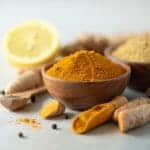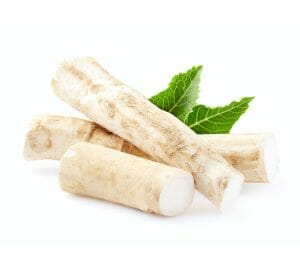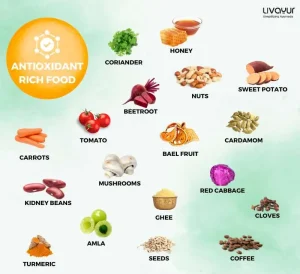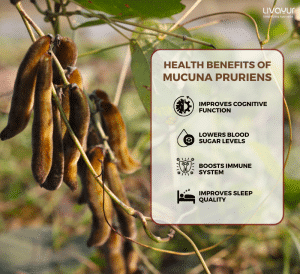Do you wish to get refreshed with a glassful of liquid nutrients? Then, enter the world of Amla juice, a potion derived from the Indian gooseberry that has been revered for several centuries for its incredible health properties. Beyond its tangy flavor lies a treasure trove of nutrients, making it a wholesome addition to one’s diet.
Amla is also revered in Ayurveda and holds a significant position as a nurturing herb with numerous health benefits. Its pivotal role in the form of a juice aimed at supporting overall well-being is well-documented in Ayurvedic tradition and in the Charka Samhita. It emphasizes its rejuvenating properties by stating, “Amalaki vayasthapnanamsreshtham,” meaning “Amalaki is the best rejuvenating herb.” Specifically, it underscores Amalaki’s prowess as a Rasayana, a rejuvenating therapy that aids in disease prevention and diminishes susceptibility to ailments. The text praises Amalaki juice for its potential to safeguard health and reduce the likelihood of falling prey to diseases. [1] In this article, we will delve deeper into the various amla juice benefits and much more.
Nutritional Value of Amla Juice
Amla juice is a powerhouse of nutrients. Packed with Vitamin C, it surpasses even oranges in its content, offering a hefty dose of antioxidants vital for bolstering the immune system. It also contains health-boosting minerals like calcium, iron, and carbohydrates, along with an array of vitamins. Here’s a table showcasing the nutritional value of amla juice.
| Nutrition | Nutritional value of Amla juice extracted from 100 g of Amla |
| Energy | 58-kilo calories |
| Fiber | 3.40% |
| Proteins | 0.50% |
| Fat | 0.10% |
| Carbohydrates | 13.7 g |
| Calcium | 50% |
| Iron | 1.2 mg |
| Carotene | 9 microgram |
| Thiamine | 0.03mg |
| Riboflavin | 0.01mg |
| Nicene | 0.2mg |
| Vitamin | 600mg |
Amla Juice Benefits
1. Enhances Immune Function
Amla juice stands out as an exceptional source of Vitamin C, a potent water-soluble antioxidant. It contains 600–700 mg of Vitamin C per fruit, making it one of the richest natural sources of this vital nutrient. Vitamin C not only shields cells from oxidative stress but also fortifies the function of immune cells. [2]
Research suggests that regular consumption of Vitamin C could prevent certain infections and even shorten the duration of common colds. [3] A study also showcased the protective effects of amla extract against oxidative stress and cellular damage triggered by arsenic exposure. [4]
2. Supports Liver Health
Amla juice also contributes to improved liver function and prevention of fructose-induced fatty liver disease. [5] According to studies, Amla extract showcased a notable reduction in body weight and abdominal fat deposition, concurrently ameliorating fatty liver disease in those with a high-fat diet. [6] Amla’s richness in antioxidants and anti-inflammatory properties further underpins its potential benefits for liver health.
3. Supports Digestive Health
Studies show that amla juice benefits also include the drink’s capacity to boost one’s digestive health. In individuals with gastroesophageal reflux disease (GERD), consumption of amla extract demonstrated significant reductions in heartburn and regurgitation. [7] Studies revealed Amla’s potential in treating diarrhea and preventing muscle spasms, offering relief from stomach cramps. Moreover, older studies highlighted amla extract’s healing prowess in preventing stomach ulcers, largely attributed to its antioxidant content.
4. Promotes Cardiovascular Health
Several studies suggest a positive impact of amla juice on various aspects of heart health. Consuming amla extract led to reduced levels of triglycerides, net cholesterol, and LDL cholesterol in individuals with abnormal blood lipid levels. [8] Moreover, amla extract intake showed promising results in improving cholesterol levels and reducing inflammation in adults with overweight or obesity. Additional studies also show a decrease in blood pressure attributed to amla extract.
5. Enhances Hair Growth
Traditionally used for hair health, amla extract has shown promise in studies related to hair growth. Applying Amla serum can majorly improve hair growth and density in individuals with hair loss. [9] Studies indicate that Amla could prevent hair loss by blocking specific enzymes and stimulating cell proliferation in hair follicles. While the direct impact of drinking amla juice on hair growth remains unclear, its nutrient content, including antioxidants and Vitamin C, could be beneficial.
6. Improves Kidney Health
Research indicates that the antioxidant properties in amla extract can support kidney health. Studies revealed amla extract’s potential to protect against kidney damage, preserve kidney function, and reduce oxidative stress. [10]
How to Make Amla Juice at Home
- Start by washing and chopping fresh Amla into small pieces, removing the seeds.
- Blend the pieces into a smooth paste, adding a splash of water if needed.
- Strain the mixture through a fine cloth or sieve to extract the juice.
- To enhance taste, mix it with honey or a dash of ginger or mint.
Side Effects and Precautions
- Acid Reflux: Excessive consumption might trigger acid reflux in some individuals.
- Hypoglycemia: Those on diabetic medication should consult a doctor as amla juice might lower blood sugar levels.
- Allergic Reactions: Some people might be allergic to Amla, causing skin rashes or respiratory issues.
FAQs
1. Is it advisable to incorporate Amla juice into your daily routine?
Research suggests that regular consumption of amla juice may aid in reducing blood pressure and mitigating the impact of cardiovascular conditions. The rich presence of antioxidants, essential vitamins, and minerals, notably potassium, in Indian gooseberries highlights its significance in a diet aimed at managing high blood pressure.
2. Who should refrain from consuming Amla juice?
Amla juice may not be suitable for individuals dealing with hypotension (low blood pressure) as it is recognized for its potential to aid in managing and stabilizing blood pressure levels. Also, it may not be recommended for those with low blood sugar concerns.
3. Can Amla juice help combat hair loss?
For individuals experiencing severe hair fall issues, regular intake of amla juice, ideally on an empty stomach, is highly recommended to potentially reduce hair fall.
4. How does Ayurveda describe the advantages of amla juice?
According to Ayurveda, Amla is beneficial in managing Pitta disorders while enhancing stamina and the body’s defense mechanisms against infections due to its strength-providing (Vrishya) and immunity-boosting (Rasayana) properties. Amla’s sour taste balances Vata, while its sweet and cold nature aids in balancing Pitta.
5. For which body constitution or dosha is amla juice recommended?
Amla fruits are renowned for harmonizing Vata, Pitta, and Kapha doshas within the body. Tailoring the consumption of Amla to suit one’s Prakriti (body constitution) is recommended. Specifically, for individuals with a Vata Prakriti or Vata disorder, Amla can be consumed with sesame oil to help balance this Dosha.
Conclusion
Amla juice benefits are immense and it emerges as a nutritional powerhouse associated with an array of remarkable health advantages. Research indicates its potential to enhance kidney, liver, and heart health, fortify the immune system, foster hair growth, and support digestive wellness. Its delectable taste and effortless preparation at home render amla juice an excellent complement to a wholesome diet.
Disclaimer
This article is written from a health and wellness perspective and is not medical advice. Kindly seek the help of a certified medical practitioner before initiating any treatment.
References
- ANTI-AGEING EFFECT OF AMALAKI: A REVIEW
- Clinical evaluation of Emblica Officinalis Gatertn (Amla) in healthy human subjects: Health benefits and safety results from a randomized, double-blind, crossover placebo-controlled study
- Vitamin C and Infections
- Immunomodulatory role of Emblica officinalis in arsenic induced oxidative damage and apoptosis in thymocytes of mice
- Amla prevents fructose-induced hepatic steatosis in ovariectomized rats: role of liver FXR and LXRα
- The hepatoprotective effect of Phyllanthus emblica L. fruit on high fat diet-induced non-alcoholic fatty liver disease (NAFLD) in SD rats
- Efficacy and safety of Amla (Phyllanthus emblica L.) in non-erosive reflux disease: a double-blind, randomized, placebo-controlled clinical trial
- A randomized, double blind, placebo controlled, multicenter clinical trial to assess the efficacy and safety of Emblica officinalis extract in patients with dyslipidemia
- Clinical Study to Evaluate the Efficacy and Safety of a Hair Serum Product in Healthy Adult Male and Female Volunteers with Hair Fall
- Amla (Emblica officinalis Gaertn.) attenuates age-related renal dysfunction by oxidative stress
























